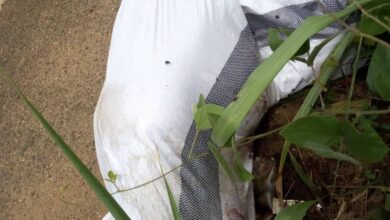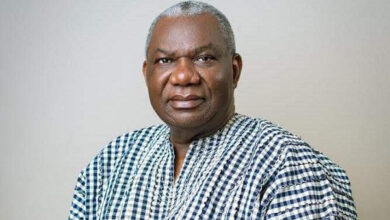Galamsey will end soon, but not through violence

Former JoyNews anchor and current Goldbod executive, Paa Kwesi Schandorf, has assured Ghanaians of the government’s intensified efforts to end illegal mining—popularly known as galamsey—through a balanced approach that emphasizes sustainability, regulation, and diplomacy.
Speaking in an interview on Woezor TV monitored by MyNewsGh, Schandorf relayed the commitment of the Minister for Lands and Natural Resources, Hon. Emmanuel Armah-Kofi Buah, to tackling illegal mining with urgency.
“If you are a Ghanaian and you are also watching and you are concerned about when galamsey will become a thing of the past, let me convey the assurances of the Minister to you that he’s working assiduously around the clock,” Schandorf said.
“Very soon, maybe by the grace of God, we will be having the conversation about illegal mining again—but in the past tense.”
However, he was quick to clarify that mining in itself is not inherently problematic. “Mining is not wrong.
The challenge has been that most of the people who indulge employ wrong approaches. And at the end of the day, the environment suffers,” he stressed.
According to Schandorf, Goldbod—formally the Ghana Gold Board—under the direction of the Lands Minister, is working on rolling out sustainable mining initiatives that will offer regulated avenues for miners to operate legally and responsibly.
“We are looking at rolling out sustainable mining initiatives that will ensure that people who are interested in mining can still go ahead… but with the required regulation and protocols so that the environment does not suffer,” he explained.
Responding to public calls for more aggressive action against illegal miners, including extreme proposals like “shoot-to-kill” tactics, Schandorf made it clear that the Minister strongly opposes such measures.
“We have had suggestions… that in dealing with the illegal miners, we should approach a very combative and lethal approach. That is to say, shoot to kill them.
“But the Minister is not a fan of that position because we are there to preserve the environment, not to spill blood,” he firmly noted.
Instead, the strategy involves a firm but humane posture. “While we are being forceful and combative, there’s a little bit of tact and diplomacy as well, so that at the end of the day, we do not aggravate or worsen the situation that already is bad,” he concluded.





